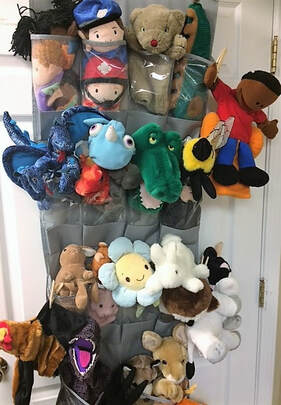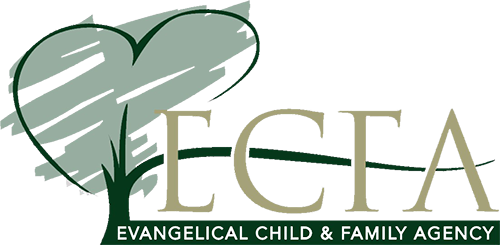How Play Informs My Work with Children, Marriages, and Families
|
Play is a primary part of healthy engagement for children, couples, and families. Researcher Jaak Panksepp called play "social joy" and highlighted its fundamental importance in his ground breaking work in neuroscience. Play is also one of the first areas that change when problems begin to take root. Play therapy allows children to fully participate in therapy in developmentally appropriate ways but it also helps marriages and adults move past defensiveness, cognitive blocks, and dysfunctional reasoning. I have found that it's harder to censor the difficult truths and easier to accept the insights that emerge in play.
In marriage therapy, I find Gottman Method Interventions work wonderfully with a play mindset, allowing couples to gain insight and new direction in our sessions through interventions engaged with enough playfulness to allow the vulnerability to emerge. So often the hurts, struggles, and pain exceed our words. Those who have experienced trauma often find accessing and addressing trauma easier in play. Play helps us show and do what we struggle to sit and say. |
My Style of Supervision
|
I am a developmentally-minded, strengths-focused systemic Supervisor who enjoys connecting Supervisees to helpful resources and tools. I work hard at staying informed on the latest developments in the field so I can direct you to helpful resources. I focus on helping you develop through the stages and competencies needed to become a successful therapist. I won’t expect you to know everything or do everything perfectly, but I will expect you to be honest about what you think isn’t going so well (on my end or yours) and to be willing to work on things you find challenging. I view mistakes as a critical part of learning and development, but I will do my best to help you avoid mistakes that have big consequences legally and ethically.
I am a Clinical Fellow of the American Association of Marriage and Family Therapists and am an AAMFT Approved Supervisor with experience supervising those in both agency and private practice settings. I am also a Registered Play Therapist Supervisor™, a Certified Clinical Trauma Professional, and a Family Mediator. For more information about my credentials click the button below. |
Interactive Hands-On
Professional Training
Just like in my approach to therapy, I believe in the power of trying and doing in my approach to training. I engage my participants by getting active using the concepts and skills being taught during the training. I also extend learning through providing additional resources to learn more so that participants can continue to grow and implement their skills after the training.
Some of My Prior CE Trainings Offered
GETTING STARTED IN PLAY THERAPY (3 or 6hr options): Defining play therapy, qualities of an effective Play Therapist, choosing therapy toys, setting up your space, and resources for building your competence
ACHIEVABLE EXPECTATIONS IN PLAY THERAPY (3 hrs): Setting the stage for successful Play Therapy with children & their parents through collaborative goals and measurable outcomes in private practice
ETHICS IN PLAY THERAPY (2 or 3 hr options): Avoid legal and ethical pitfalls through learning about the use of touch in Play Therapy, protected terms, confidentiality laws regarding minors, and marketing yourself and your play therapy skills ethically.
INTRODUCTION TO CHILD CENTERED PLAY THERAPY (CCPT) (3 or 6hr options):
Basic therapeutic skills used in Child Centered Play Therapy
TERMINATIONS IN PLAY THERAPY (1.5 or 3hr options): Ending well to empower resilience and
celebrate success
ASSESSING CHILDREN AND FAMILIES IN PLAY THERAPY (3 hrs): 7 relational assessments to inform therapy with children and their families
PLAY THERAPY WITH THE FAMILY (3hrs): Explore Play Therapy approaches to engage the power of play to treat families in therapy
PLAY THERAPY IN THE SANDTRAY (3 or 6hr option): Play Therapy in the sand to help clients show you their world
FULL OF FEELINGS (1.5 or 3hr options): Play Therapy activities for building feeling vocabulary and improving awareness of emotions in self and others
CULTIVATING CALM IN PLAY THERAPY (1.5 or 3hr options): Play Therapy activities to help children and families learn relaxation and calming tools
PLAY THERAPY USING BOOKS AND STORIES (1.5 or 3hr options): Bibliotherapy with additional play therapy activities connected to specific therapeutic goals
PLAY THERAPY USING GAMES (1.5 or 3hr options): Exploring the use of games to help children and families reach their goals
WHEN TOYS ARE THEIR WORDS: INTEGRATING CHILDREN'S VOICES IN FAMILY THERAPY (2hrs): Discover how including play therapy in your clinical toolbox can transform the obstacles of working with children into the vehicle for finding healing. Family Therapy is distinctively powerful because of its ability to actively engage all members of the family together in therapy. However, family therapists are rarely trained in developmentally appropriate ways to include children whose cognitive development inhibits their participation in talk-based therapy. Through engaging in several play interventions that employ the therapeutic powers of play, participants will discover how play works to define and transform family dynamics.
THE POWER OF PLAY TO DEFEAT COGNITIVE DISTORTIONS IN CHILDREN AND FAMILIES (3hrs)
ACTIVATING THE POWERS OF PLAY TO ASSESS, ENGAGE, AND TREAT TRAUMATIZED CHILDREN (3hrs): Training for a faith based agency working with distressed and disrupted children and families.
POWERFUL PLAY FOR SYSTEMS THINKERS (3hrs)
FRESH AND FUN FAMILY ASSESSMENTS EMPLOYING THE THERAPEUTIC POWERS OF PLAY (3hrs)
- Learn the qualities of an effective play therapist and how they contribute to the impacts of Play Therapy.
- Discover the categories and types of toys you need to put play therapy in to action, how they are used, where to find them inexpensively, and how to create a portable therapy kit when needed.
- Explore options for play therapy room design and function that address therapeutic needs within challenging spaces.
- Build a professional toolbox of accessible resources to grow your clinical competence including my list of the 4 books you need on your bookshelf as a beginning play therapist.
ACHIEVABLE EXPECTATIONS IN PLAY THERAPY (3 hrs): Setting the stage for successful Play Therapy with children & their parents through collaborative goals and measurable outcomes in private practice
- Establish a systemic plan to foster clear and achievable parent expectations for play therapy to avoid misunderstandings and frustration later in therapy.
- Discover how to explain what play therapy is and why you use it to parents and caregivers using research, metaphor, multimedia, and through experiencing two play therapy assessment activities designed for parents.
- Learn how to structure an intake session for play therapy to Identify the full range of symptoms a child and family are experiencing, elicit important family history, and define parents’ vision for what successful therapy looks like in the first session.
- Discover how to help parents prepare to talk to their child about the first session
- Practice a method for greeting a child the first time they come to your office.
ETHICS IN PLAY THERAPY (2 or 3 hr options): Avoid legal and ethical pitfalls through learning about the use of touch in Play Therapy, protected terms, confidentiality laws regarding minors, and marketing yourself and your play therapy skills ethically.
- Explore APT guidelines on use of touch in play therapy with children including special issues for children with histories of sexual abuse or sexualized behavior.
- Understand APT guidelines and TN law regarding how to market yourself accurately and ethically in your use of play therapy terms, logos, and marketing your play therapy skills
- Experientially explore ethical dilemmas in play therapy and use a decision-making model to develop a plan to address them.
- Review specific details of TN law that all mental health providers must follow regarding confidentiality rights and practices for treating children and those with developmental disabilities
- Learn about resources to find qualified supervisors including new credentialing policies from APT effective January 1, 2023, as well as resources you can use to seek assistance with ethical questions.
INTRODUCTION TO CHILD CENTERED PLAY THERAPY (CCPT) (3 or 6hr options):
Basic therapeutic skills used in Child Centered Play Therapy
- Learn about the importance of conveying “Be With” attitudes in play therapy and how to distinguish them from common misperceptions of what being with looks like..
- Investigate the neurobiological power of resonance and develop the skills to follow a child’s lead, return responsibility to the child, and wonder rather than ask questions in play therapy.
- Explore and experientially practice how to track a child’s nonverbal play therapeutically in session during play therapy.
- Discover and experientially practice reflecting a child’s feelings, wants, and wishes expressed in play, as well as how to build self-efficacy and self-esteem through Child Centered Play Therapy.
- Develop an understanding of when, how, and why limits are set in Child Centered Play Therapy sessions.
TERMINATIONS IN PLAY THERAPY (1.5 or 3hr options): Ending well to empower resilience and
celebrate success
- Identify specific therapeutic challenges for both parent-initiated and therapist-initiated terminations to play therapy and discover how to address a child client’s needs with each type.
- Learn how to assess a child’s readiness to end play therapy successfully and target areas that need additional attention.
- Develop the skills to collaborate with parents in the termination process of play therapy.
- Discover 4 steps to prepare a child to terminate play therapy well and experience 4 play activities to help children through the termination process successfully.
ASSESSING CHILDREN AND FAMILIES IN PLAY THERAPY (3 hrs): 7 relational assessments to inform therapy with children and their families
- Experientially practice play therapy methods for assessing relationships, stressors, and strengths in children and families.
- Discover how to provide prompts, structure the activity, and reflect and process the assessment with the family during play therapy in ways that fully include the children.
- Explore how to document the results of these play therapy assessments in your clinical notes.
PLAY THERAPY WITH THE FAMILY (3hrs): Explore Play Therapy approaches to engage the power of play to treat families in therapy
- Experientially explore techniques used in 3 systemic play therapy models.
- Discover the populations and treatment concerns for which these play therapy models are most effective according to current research.
- Explore options for additional training in each method, understand permitted use of terms, and where to learn more about play therapy with families.
PLAY THERAPY IN THE SANDTRAY (3 or 6hr option): Play Therapy in the sand to help clients show you their world
- Learn about what materials are used in sandtray, where to purchase them, and where to find resources and training opportunities to increase your skill with sandtray play therapy.
- Experientially explore prompts to use in sandtray play therapy.
- Discover how to process sandtray play therapy with clients including differentiating from how children engage with sandtray creations differently than teens or adults.
- Explore use of sandtray with special populations and specific therapy models
FULL OF FEELINGS (1.5 or 3hr options): Play Therapy activities for building feeling vocabulary and improving awareness of emotions in self and others
- Discover 3 books to build emotional vocabulary and acceptance of feelings in children and their families using play therapy.
- Learn 4 Play Therapy activities to help children share their feelings in session
- Experience 3 Play Therapy interventions to engage children and their families in feeling work including discovering how feelings interact within the family.
CULTIVATING CALM IN PLAY THERAPY (1.5 or 3hr options): Play Therapy activities to help children and families learn relaxation and calming tools
- Learn 2 ways to use play therapy to teach deep breathing skills to children and their families
- Experience 3 ways to playfully practice progressive muscle relaxation with children and their families using play therapy.
- Discover 3 ways to explore guided imagery using play therapy with children and their families
- Explore 2 ways to help children and their families discover how to be present in their bodies using play therapy.
PLAY THERAPY USING BOOKS AND STORIES (1.5 or 3hr options): Bibliotherapy with additional play therapy activities connected to specific therapeutic goals
- Discover how books and stories can be used to address clinical goals and client needs in play therapy.
- Experientially participate in exploring books with a play therapy activity for several specific issues including sexual abuse, anxiety, trauma, perfectionism, body image, attachment, and terminal illness.
- Learn how to introduce books and stories into play therapy with a child, how to follow a child’s cues during the story, and how to read the story to optimize a child’s engagement.
PLAY THERAPY USING GAMES (1.5 or 3hr options): Exploring the use of games to help children and families reach their goals
- Experientially explore the use of games in play therapy.
- Learn how to identify and document the goals with which each game can help in play therapy.
- Discover how to create your own games for specific client needs in play therapy using inexpensive items.
WHEN TOYS ARE THEIR WORDS: INTEGRATING CHILDREN'S VOICES IN FAMILY THERAPY (2hrs): Discover how including play therapy in your clinical toolbox can transform the obstacles of working with children into the vehicle for finding healing. Family Therapy is distinctively powerful because of its ability to actively engage all members of the family together in therapy. However, family therapists are rarely trained in developmentally appropriate ways to include children whose cognitive development inhibits their participation in talk-based therapy. Through engaging in several play interventions that employ the therapeutic powers of play, participants will discover how play works to define and transform family dynamics.
- Participants will be able to identify how play therapy facilitates a child’s full participation in therapy.
- Participants will discover how play elicits important metaphors to define and transform family dynamics.
- Participants will experientially learn at least 3 new play interventions which will be useful in their clinical work with children and families.
THE POWER OF PLAY TO DEFEAT COGNITIVE DISTORTIONS IN CHILDREN AND FAMILIES (3hrs)
- Identify how cognitive distortions impact children and their families
- Discover toys that are useful in addressing cognitive distortions using the directive model of Cognitive Behavioral Play Therapy
- Learn about 2 books to address cognitive distortions in children and their families
- Experientially explore 3 games to identify and defeat cognitive distortions in Play Therapy with children and their families
ACTIVATING THE POWERS OF PLAY TO ASSESS, ENGAGE, AND TREAT TRAUMATIZED CHILDREN (3hrs): Training for a faith based agency working with distressed and disrupted children and families.
- Participants will experientially learn the basics of how play therapy is used to effectively assess, engage, and treat children, exploring concepts from scripture, interpersonal neurobiology, child development, and culturally competent practice.
- Participants will investigate different types of clinical play therapy and for what ages and problems play therapy is recommended in current research, with special attention given to trauma.
- Participants will discover resources for further developing their play therapy skills and options for referring clients for play therapy services.
POWERFUL PLAY FOR SYSTEMS THINKERS (3hrs)
FRESH AND FUN FAMILY ASSESSMENTS EMPLOYING THE THERAPEUTIC POWERS OF PLAY (3hrs)
- Discover recent research regarding the importance of play in family therapy and the importance of engaging families to improve outcomes.
- Develop an understanding of how the therapeutic powers of play improve your ability to discover important information for effective case conceptualization in families, parent-child dyads, sibling sessions, and with teens.
- Experientially practice Family Play Therapy activities for assessing relationships, stressors, and strengths in children, teens, and families.
- Discover how to provide prompts, structure your session, and reflect and process each assessment activity in ways that fully and appropriately include all developmental levels present.
- Explore how to document the results of these play therapy assessments in your clinical notes and use the assessment to inform your case conceptualization and treatment planning.
A Few of the Organizations Where I've Provided Training
|
I have been blessed to have had the opportunity to teach a number of professional and continuing education programs. Here are some of the organizations which have sponsored me.
|








